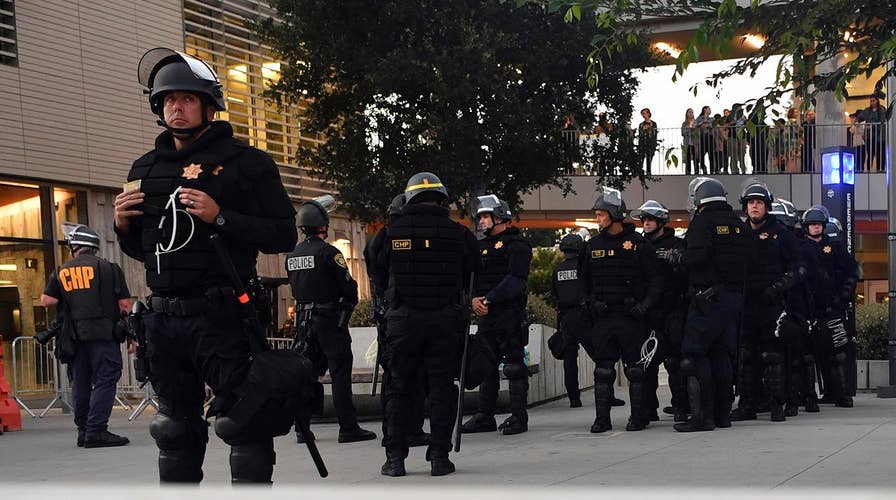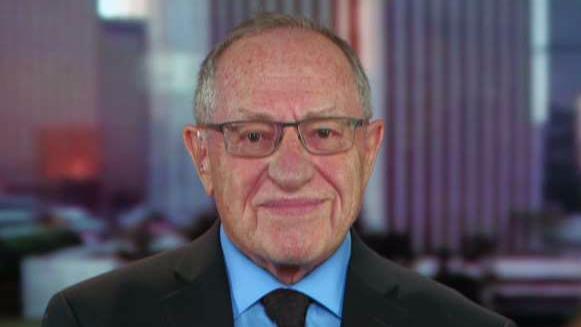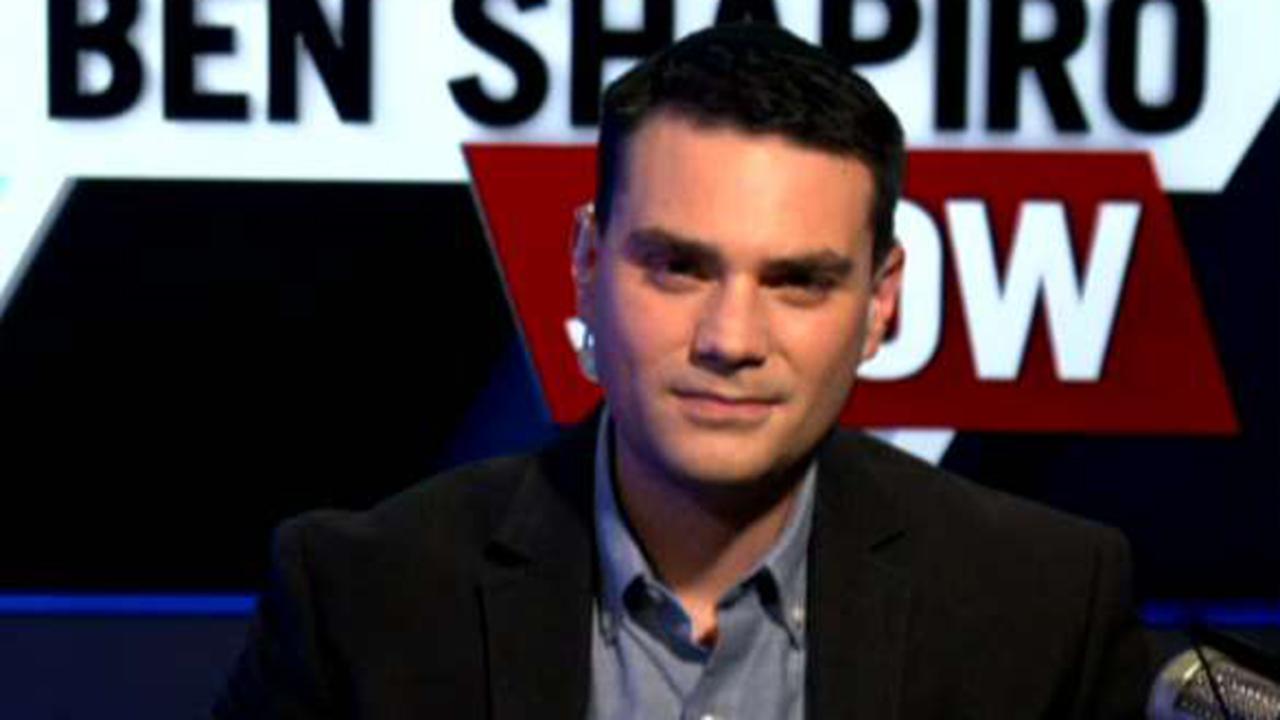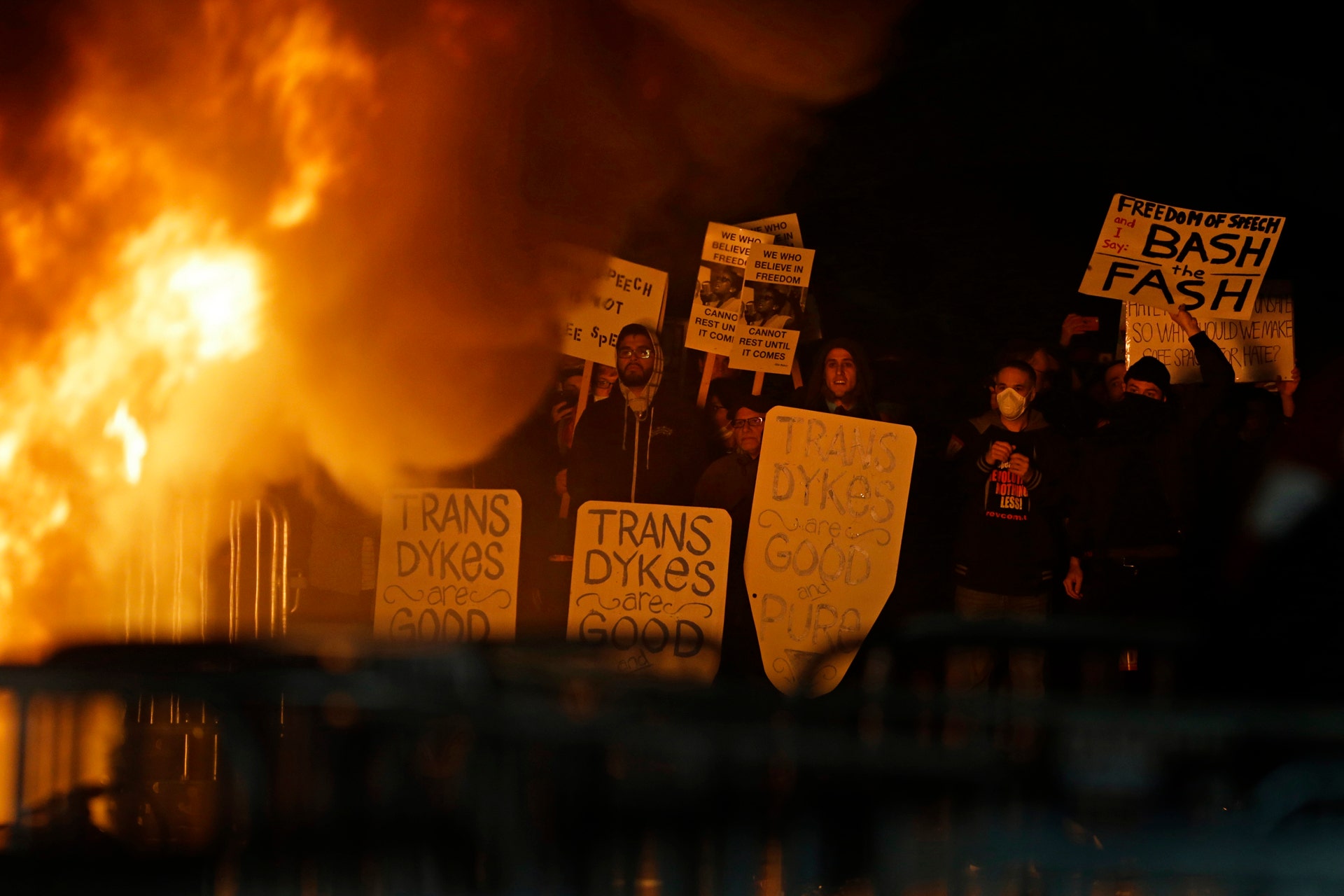Berkeley beefs up security for Ben Shapiro event
Fox News contributor Marc Thiessen and Wendy Osefo, professor at Johns Hopkins University, join the debate
In an unprecedented step, the University of California system is preparing to give at least $300,000 to help UC Berkeley pay the security costs for right-leaning controversial speakers during the campus' “Free Speech Week,” with the system's president quipping "free speech is not free."
UC President Janet Napolitano said the school system would underwrite security costs through the end of the week-long event, which will feature provocateur Milo Yiannopoulos, former White House chief strategist Steve Bannon and others.
“Free speech is not free, it turns out,” Napolitano told the Los Angeles Times on Wednesday, adding that financial support for such events may not continue after the events -- because it may not be sustainable. “The question, or the rock and the hard place that Berkeley is in, and other university campuses, is the value put on free speech, and the safety and security issues that are implicated.”
Dan Mogulof, UC Berkeley spokesperson, told Fox News on Thursday that it's too early to put an exact estimate on security costs for "Free Speech Week," saying the cost will "far exceed" $300,000.
“It’s too soon to make a ballpark estimate because we have to wait and see how many of these speakers actually show up," he said. “It’s going to be so much that if you have to ask, you can’t afford it.”
MILO YIANNOPOULOS LEADS BERKELEY'S CONTENTIOUS 'FREE SPEECH WEEK': WHAT TO KNOW
UC Berkeley has shelled out at least $1.4 million in security costs since Yiannopoulos’ last appearance on campus, which sparked violent protests. For that event, the campus spent $200,000 on security followed by $600,000 for conservative commentator Ann Coulter.
Coulter’s event was ultimately canceled by the sponsoring campus groups.
An estimated $600,000 was paid last week for security during a talk by conservative writer Ben Shapiro, Mogulof said last week.
"It's an incredible amount of money," Mogulof said last Friday, a day after the Shapiro event. "And while we don't regret that we spent it given the event was held peacefully, we certainly would have rather spent it on other purposes."
Yiannopoulos, who's organizing "Free Speech Week," says he's lined up 20 speakers including writer Ann Coulter, blogger Mike Cernovich and commentator Pamela Geller to speak on campus during the four-day event that starts Sunday.
The use of university funds for security instead of other campus needs has sparked controversy among students.
“We experience every day the repercussions of our budget shortages,” said Rigel Robinson, UC Berkeley’s student body vice president of external affairs. “We don’t have an understanding of where every dollar of security costs is coming from. But the optics of the university being so willing to drop a half-million dollars to facilitate an event for one single student organization could not be worse."
NON-STEM PROFESSORS REPORTEDLY PUSH FOR BOYCOTT OF UC BERKELEY 'FREE SPEECH WEEK'
Pranav Jandhyala of Berkeley Patriot, the student group sponsoring Free Speech Week, said the high costs should be blamed on the university and the city’s failure to “effectively deal with leftist hate groups.”
“We’re not responsible for the violence people choose to engage in that drives up the cost of police,” Jandhyala said. “It’s utterly insane that we’re being blamed for violence we’re victims of and are taking so many measures to prevent.”
Berkeley's reputation as a liberal stronghold and the birthplace of the 1960s Free Speech Movement has made the city and campus flashpoints for the country's political divisions, drawing extremist groups from the left and right.
Four political demonstrations, starting with the Yiannopoulos event, have turned violent since February, prompting officers to come up with new strategies to control rowdy and sometimes dangerous crowds.
The university has struggled financially in recent years, but Mogulof said the security expenses would not cut into academic spending.
"Our operating budget is north of $2.6 billion a year. You're going to have allowances for unforeseen situations," he said.
Fox News' Andrew O'Reilley and the Associated Press contributed to this report.





